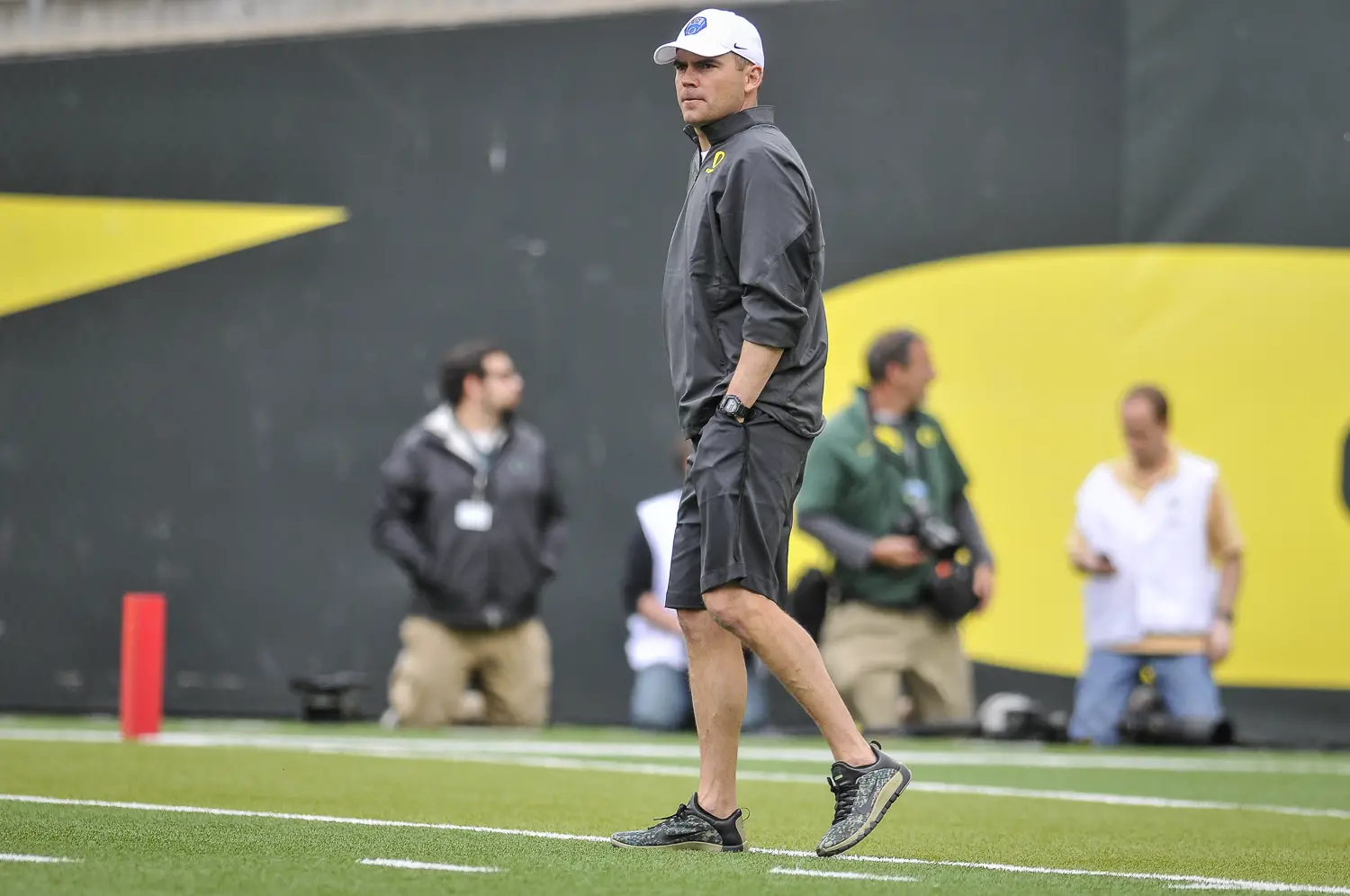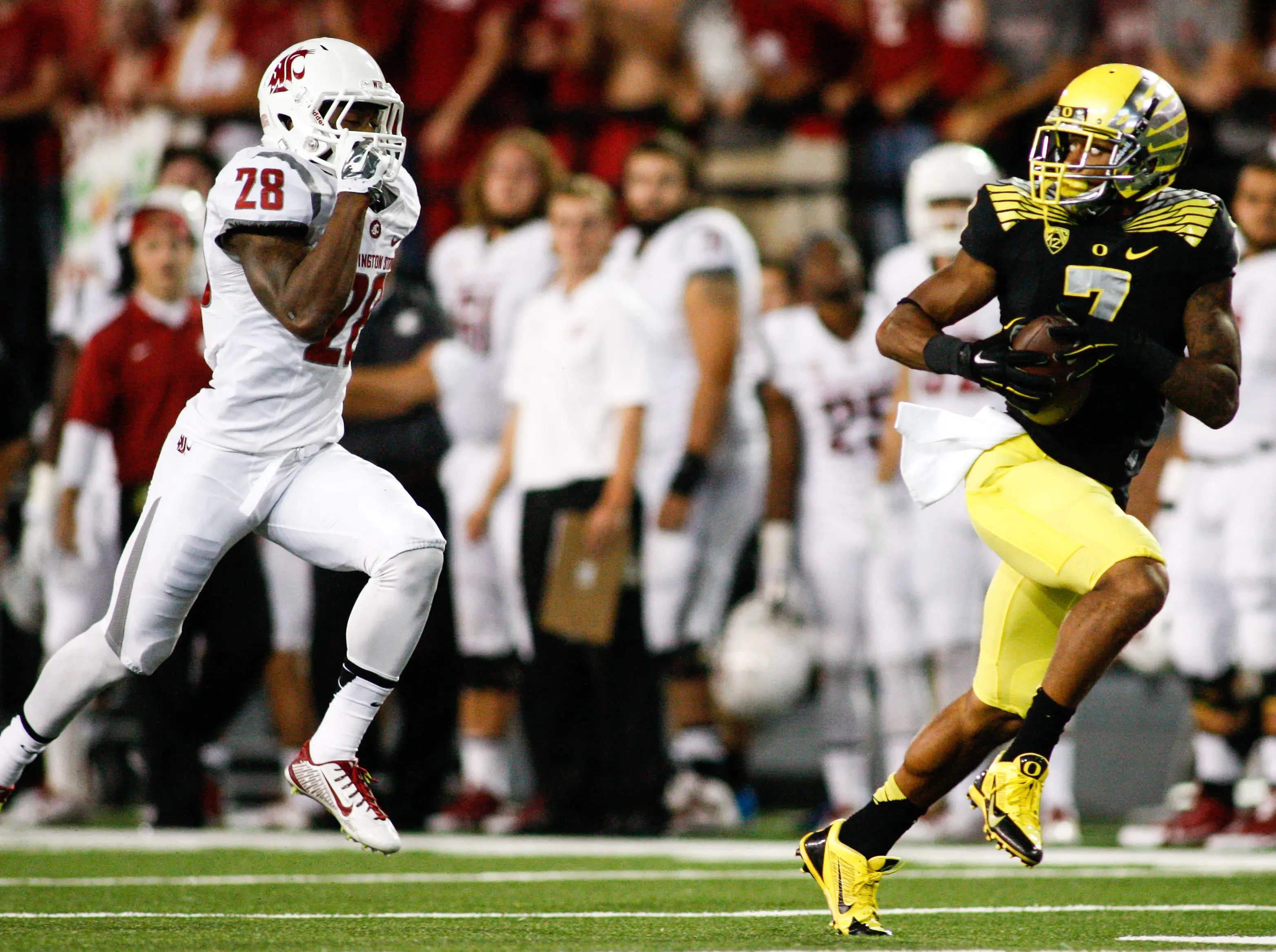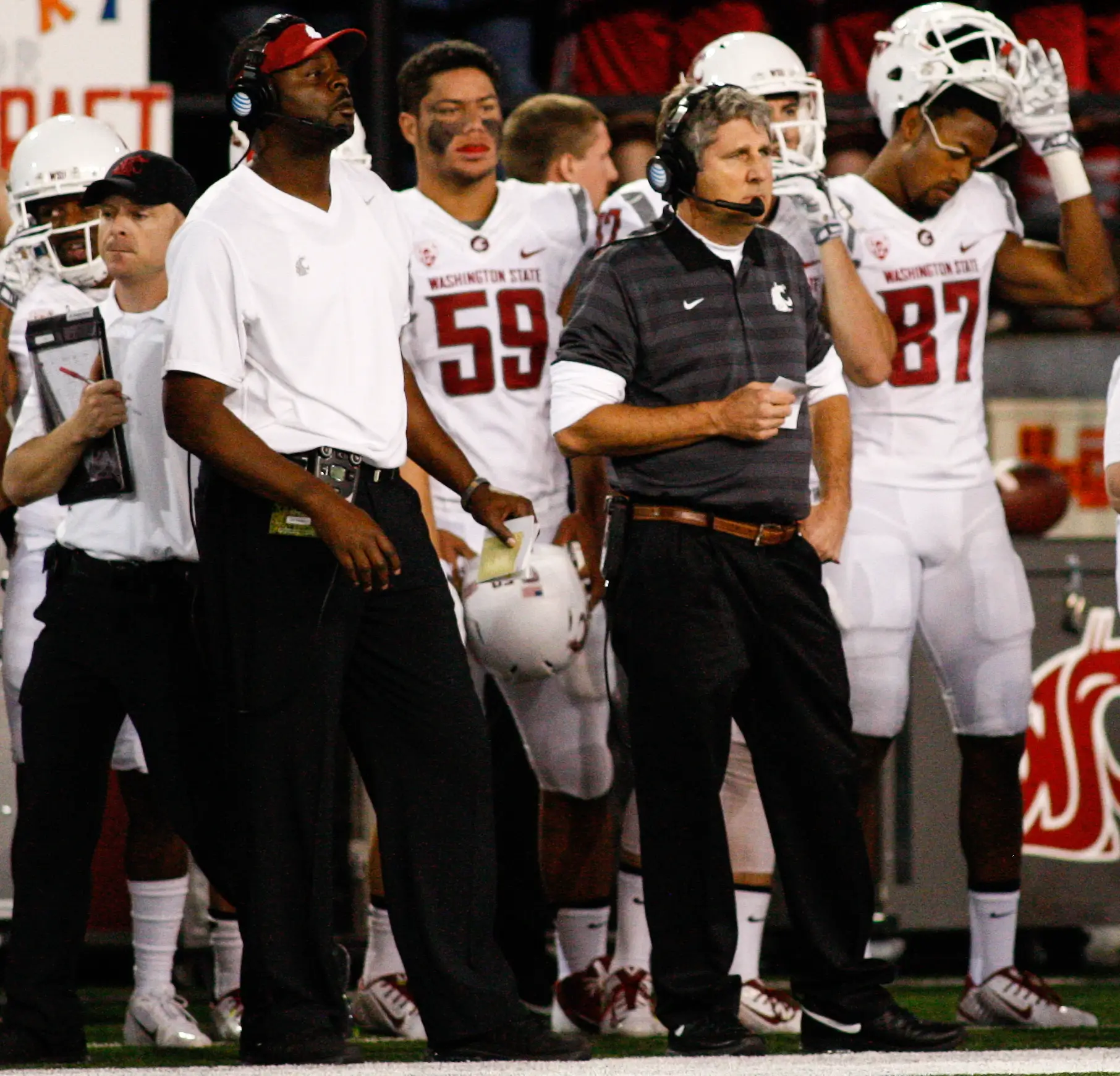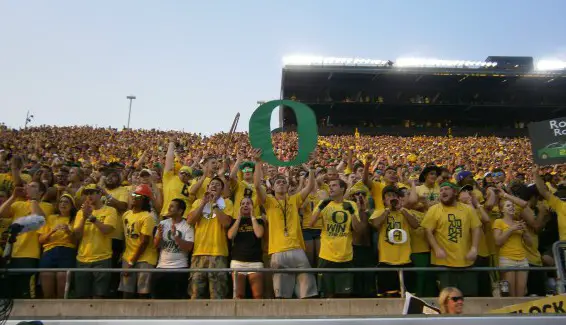Athletic directors at major schools all over the country are paid handsomely to know what makes a great college football coach, yet time and time again we see coaches fail — sometimes spectacularly — to bring success and a winning attitude to campus. So what’s the answer? Is it recruiting ability, X’s and O’s, enthusiasm, or something else?
Some coaches have had success in one place, then taken a better-paying and more prestigious job somewhere else and fallen flat on their faces. Others seem to take up permanent residence in the .500 department, rarely having losing seasons, but struggling to consistently stay anywhere north of 6-6. Then, there are the oh-so-few consistent winners, guys who’ve had success wherever they’ve been, regardless of the amount of money the program has available or whether or not they’re landing 5-star recruits every year.
Perhaps then a better question would be, what separates the great coaches from the rest of the pack?
There are a million different ways you could go with this one, but let’s narrow it down to three things that don’t get talked about enough. If you’re a coach, these will probably sound familiar.
Time
For all the exciting highlights, dramatic moments, and fiery speeches given in the locker room, the day-to-day life of a football team can get pretty monotonous. The NCAA limits football coaches to just 20 hours per week in which they can require a player to show up to team activities, and that includes games. They must also give the players a day off each week, which is usually either Sunday or Monday. After subtracting the amount of time it takes to suit up and play, coaches are left with between 14 and 17 hours to use over the other five active days of the week, which comes in at about 3 hours a day. Most teams have practices that last between 90 minutes and 2 hours, and then there are the meetings to teach the game plan and review the mistakes from the last game as well.

Having to choose how to use a precious resource–time–most efficiently, Mark Helfrich is part coach and part economist.
There is some creative accounting of hours that goes into making sure that the program abides by NCAA rules, and any team activities that fall outside of the 20 hour rule are considered “voluntary” (though you should probably take that definition with a grain of salt). These activities include weight lifting and conditioning activities. The week’s schedule is planned ahead of time, and a smart coach keeps all itineraries and practice schedules on file to serve as documentation that the program is currently and has been in the past compliant with NCAA rules.
Thus, the job of a football coach, especially for the head coach and the coordinators, is to take several extremely limited commodities and figure out how to most efficiently put them to use.
Player Reps
For all the press the Ducks have received since the beginning of the Chip Kelly era about their flashy offense, another phase of the program has gone largely unnoticed by the media, and that is the way they’ve managed their players and minimized the number of hits in practice each week.

Oregon football remains on the cutting edge of sports science, using all available data to make sure players stay as fresh and healthy as possible.
Kelly has even taken that approach to his new gig in Philly, noting in a recent podcast that his players said in December of last year that they had never felt so fresh that late in the season.
Of course, the Oregon and Philadelphia staffs are very guarded about exact details of their approaches; however, we know at the very least that they track players in-practice reps very closely, especially during contact periods where players face the most danger of injury.
Following the number of practice reps certain players get has another benefit as well, since they can track who has practiced what particular play the most and who does it the best. You’d never want to get into a situation in a game where some of the guys on the field had never run a called play during practice. Attention to detail on the part of Oregon eliminates that fear.
Game Plan Reps
There are only so many plays in a football game, even for a team that is used to running a play every 15-20 seconds, as the Ducks are prone to do. As a result, there are a limited number of schemes the offensive and defensive coordinators can fit into a game. It stands to reason that with the limited amount of practice time available to coaches each week, there are only so many opportunities to practice a play each week, evaluate that play, and decide whether or not to include it in the game plan on Saturday.
So how much do you have to practice a play before you get good enough at it to run it in a game? The answer depends on who you ask, since different coaches have different philosophies, but no matter what scheme you run, there will always be some things you do better than others. As a team gets familiar with its base schemes, it will practice them a little less as the season goes on in order to open up time in the practice schedule to add in a wrinkle here and there. Each team has a unique set of strengths and weaknesses, and that includes the players’ ability to retain information and the coaches’ ability to teach it.

Washington State Head Coach Mike Leach is a master at using simple game plans to light up the scoreboard.
Many coaches have solved this problem by becoming more simple in what they do, for example, Washington State head coach and noted pirate enthusiast Mike Leach. Others have gone up-tempo in practice in order to maximize the number of reps for each play. As you well know, Mark Helfrich and the Oregon staff do both.
Taking all that into account, and after assessing the strengths and weaknesses of the opponent, a coach puts together the final game plan at the end of the week. His ability to manage the amount of information being taught to players each week, combined with the ability to evaluate what his team does best, is a big part of whether the team leaves the field on Saturday with a win or a loss.
Main photo by Jeff White
Alex Kirby (Writer and Football Analyst) worked several seasons as an assistant football coach at the high school and college levels and is the author of Speed Kills: Breaking Down the Chip Kelly Offense, now available HERE.

